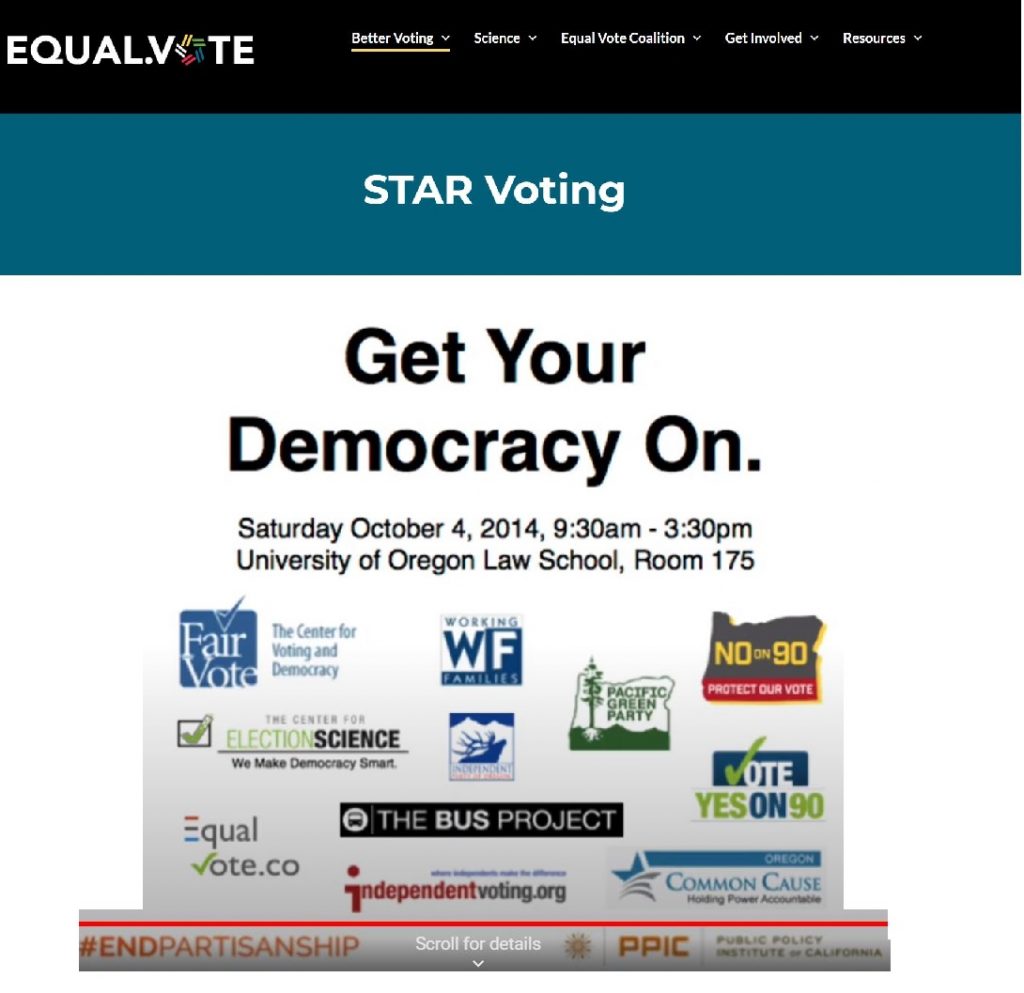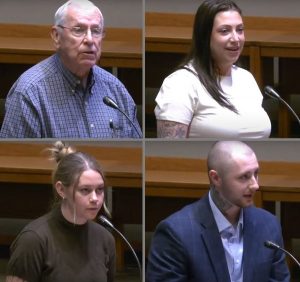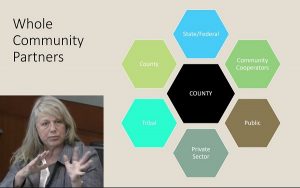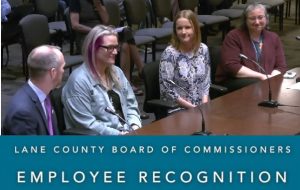Homegrown STAR Voting gets a boost from court, now looks to local officials
5 min read
Invented in Lane County, STAR Voting got a boost from a separate court decision on voter initiatives.
STAR Voting came up as the LTD board continues to tighten its policies after a gender discrimination investigation earlier this year. One member wants a better way of electing board officers.
[00:00:13] Don Nordin: What I feel uncomfortable about is the way it says, ‘The members of the board shall elect their officers.’ And there’s no particular structure by which that happens. The way we vote officers, it should be defined in a way that everyone understands how it happened, rather than having it just kind of happen, and you look around and say, ‘Well, how did that happen?’
[00:00:38] I’ve been on other boards and I’ve seen the same dynamic and I feel like we’re missing a part of our democracy, a way that any citizen can involve themselves in a public body.
[00:00:53] John Q: Don was asked for a recommendation.
Thank you for supporting
local citizen journalism
[00:00:56] Don Nordin: I’m struggling with that myself, trying to see, well, how would I change it? What language do I want? And I, and the first iteration I thought, well, okay. I could just insert a clause in there and say that the vote would be done according to preference voting or STAR voting,
[00:01:12] John Q: After discussion, the board created an ad hoc bylaws committee. President Caitlin Vargas.
[00:01:19] LTD Board President Caitlin Vargas: And so Michelle, Susan and Emily will be serving on the ad hoc bylaw revision committee.
[00:01:27] John Q: The committee may take up Don’s idea for STAR Voting. What is it? Speaking in 2017, Mark Frohnmayer.
[00:01:35] Mark Frohnmayer: We call it STAR Voting: Score, Then Automatic Run-off.
[00:01:40] It was invented here in Lane County as the unlikely outcome of a debate in 2014, between some of the nation’s leading advocates of ranking and rated voting systems. And it sort of bridges and breaks the trade-offs between both.
[00:01:55] And here’s how it works: On a ballot, you score the candidates, like zero to five, and then the two candidates who get the highest scores advance to a runoff. In that runoff, your full vote is automatically assigned to whichever one you gave a higher score. If you give them both the same score, well, then you abstain in the runoff.
[00:02:15] The runoff keeps us honest. It actually gives an incentive for you to differentiate your scores if you have a difference of opinion, rather than just sort of like bullet voting your one favorite or maximizing the scores of everyone on your side. It’s incredibly accurate…
[00:02:30] If we’re going to heal our representative democracy, we actually need to have one in the first place. And we should do it here first. So go to equal.vote, check it out.
[00:02:41] John Q: STAR voting got a boost this month from a different court case. That opinion suggested voters should have seen a STAR voting initiative on the 2020 ballot. From Equal.Vote, Sara Wolk.
[00:02:53] Sara Wolk: The STAR voting for Eugene initiative should have qualified for the ballot three times over. So there’s three separate reasons and if any of those reasons were accepted, that would have done the trick.
[00:03:05] We found enough errors in the initial report, things like a wife and husband who both have the same nickname and the same last name and the signature match the husband, but not the wife. So it was crossed out because they verified it against the husband. That alone should have fixed the issue.
[00:03:24] And then initially additionally, there was a signature verification process, they look at 20% of the signatures and there were enough people who were thrown out for like signature mismatch that would have easily made the difference. And you know, we actually had our lead canvasser go door to door, to a number of people’s houses and say, ‘Hey, was this actually your signature or did somebody forge your signature? Is this you on line seven?’ And enough people actually signed legal notarized affidavits saying, ‘Yes, this is my legal signature. I did sign this. It should have been counted.’ That alone would have made the difference.
[00:04:03] And so we appealed directly to Lane County Elections and to the City of Eugene and got nowhere. They said, ‘Oh, the whole issue is moot. It should have been on the 2020 May primary, but that election’s already happened.’ But that actually was completely wrong. The way that it works for a statewide initiative is you’re collecting signatures for a specific ballot. But for local initiatives, the wording is slightly different. There you are just collecting signatures and you have a certain window to do it in. As soon as they verify the signatures, it should qualify for the next ballot.
[00:04:43] We were appealing it on those grounds and then another ruling came in that strengthened our case even more.
[00:04:50] You take a voter who is a legal, registered voter, they’re local they’ve done everything right, they just haven’t voted recently for some reason. And it’s illegal, but it’s standard practice to reject those people from ballot initiatives.
[00:05:05] Another case actually ruled on another ballot initiative and they had said, ‘Hey, you threw out a bunch of people for being inactive voters.’ And so that was ruled to be unconstitutional in Oregon right before New Year’s Eve of 2020. And for our ballot initiative, we had initially protested that as well, but they had been like, ‘No, no, this is our policy. This is how it’s done. You can’t contest that.’ And we had said, ‘Okay, well this is horribly unfair.’ And even the Lane County Elections staff had been like, ‘Yeah, this is just a horrifically unfair policy, but those are the rules. I’m just doing my job.’ But yeah, 255 people on our petition were rejected for that reason alone. And so that’s the case where in addition to all the other reasons that STAR Voting for Eugene should have qualified, we’re now appealing that as well, and we’re expecting our next court date to be in March or April or May of next year.
[00:06:06] John Q: While her group plans to pursue legal appeals, Sara hopes local elected officials will go ahead on their own and put STAR voting on the ballot.
[00:06:15] Sara Wolk: Six out of the eight city councilors had actually signed our ballot initiative in the first place. A majority had actually filled out the paperwork and endorsed STAR voting.
[00:06:25] John Q: Perhaps knowing it was invented in Lane County, and is under consideration at LTD, our city councilors and county commissioners can support our homegrown voting algorithm: One person, one vote.



